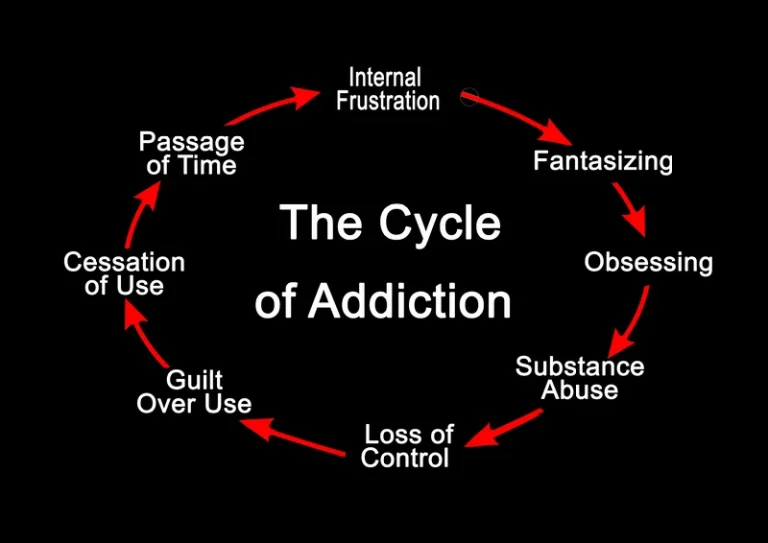
An example would be a father who falls asleep on the couch after having several drinks three or four days a week, missing out on time with his kids and wife. Another would be a college student who repeatedly has trouble making it to class because she was drunk the night before. These individuals, sometimes called “almost alcoholics,” may not see the connection at first but would often benefit from help and support. Alcohol use disorder is a problematic pattern of alcohol use that leads to distress in one’s daily life, according to the DSM-5.
- As anyone who has had even a glass of wine can attest, alcohol can have a noticeable influence on mood.
- They didn’t have a lot of money but enjoyed long rambles in the countryside, as part of a local group, liked to socialise, and relished spending time at their allotment.
- Although addiction is widely recognized as an illness, it can cause deep-seated feelings of shame.
- Clinicians call such a behavioral disorder a disease because it persists for years, is strongly hereditary, and is a major cause of death and disability.
- Since you only need to fulfill 2 or more of the DSM-5 criteria within the last year to be diagnosed with AUD, you might still be fully contributing to your home life, job, and other areas of your life.
What Increases the Risk for Alcohol Use Disorder ?

By Buddy TBuddy T is a writer and founding member of the Online Al-Anon Outreach Committee with decades of experience writing about alcoholism. Because he is a member of a support group that stresses the importance of anonymity at the public level, he does not use his photograph or his real name on this website. In addition to getting professional treatment and support, there are things that you can do to help feel better and improve your chances of recovery.
Is Alcoholism Genetic or Hereditary ?
- According to a recent report from Ibec group Drinks Ireland, sales of non-alcoholic beer grew last year by 18 %, as production surged by 50 %, in response to rising consumer demand.
- As people begin to drink more frequently, alcohol produces desired feelings in the body and brain through the release of specific brain chemicals.
- Think about how often we see people in movies or on TV having a great time with a drink in their hand.
- For this reason, these factors are a part of the diagnostic criteria.
- Research shows that men are more likely to have an alcohol addiction, but women are at a greater risk of health problems from alcohol abuse.
An informed minority opinion, especially among sociologists, believes that the medicalization of alcoholism is an error. Unlike most disease symptoms, the loss of control over drinking does not hold true at all times or in all situations. The alcoholic is not always under internal pressure to drink and can sometimes resist the impulse to drink or can drink in a controlled way. The early symptoms of alcoholism vary why do people become alcoholics from culture to culture, and recreational public drunkenness may sometimes be mislabeled alcoholism by the prejudiced observer. In the general population, variation in daily alcohol consumption is distributed along a smooth continuum. This characteristic is inconsistent with the medical model, which implies that alcoholism is either present or absent—as is the case, for example, with pregnancy or a brain tumour.

What Is the Official Definition of Alcoholism ?

“Essentially, my research aims to identify individual risk factors of alcohol or risky alcohol use and negative alcohol-related outcomes. King is part of the clinical training area under the mentorship of William Corbin, professor of psychology and director of the Behavioral Alcohol Research for Clinical Advancement (BARCA) lab. Alcoholism is a treatable disease, with many treatment programs and approaches available to support alcoholics who have decided to get help. Getting help before your problem drinking progresses to severe alcohol use disorder can save your life. Alcohol use disorder is considered a progressive disease, meaning that the effects of drinking alcohol become increasingly more severe over time. Taking an alcoholism screening quiz can help you determine whether you have the symptoms of an alcohol use disorder.

Fatal helicopter crash occurred during ‘training manoeuvre’
- The latter two are referred to as positive drinking motives and relate to winding up—using alcohol for fun.
- Though there is no singular cause behind alcohol addiction, many different factors can contribute to its development.
- It is not uncommon for individuals with AUD to experience conflict with family and friends, and have drinking negatively impact their job, schooling, and overall safety.
- The rise of mocktails, nonalcoholic beer, and legal weed offer plenty of alternatives.
- In the U.S., state alcohol taxes have fallen more than 30 percent in real terms since 1990.
- Slips can be fueled by withdrawal symptoms, mental health challenges, and drug-related cues, such as spending time with old drinking partners or visiting old drinking locations.
- Some cultures may normalize or even celebrate drinking, which leads to increased levels of alcohol consumption and increased numbers of alcohol use disorders.
- Alcohol Use Disorder is a pattern of disordered drinking that leads to significant distress.
New research challenges long-held beliefs about the perks of drinking.









